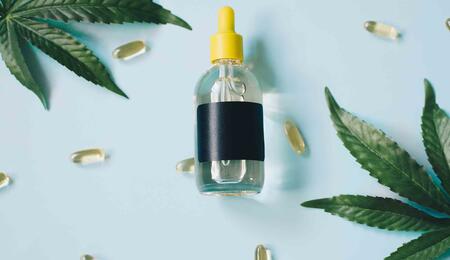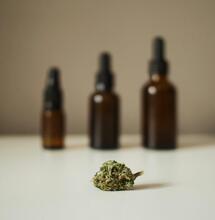Why Cannabis won't Cure Covid Just Yet.

Last week, a scientific study published in the "Journal of Natural Products" caused headlines throughout the cannabis industry and across the world. Researchers at Oregon State University reported that the raw forms of the cannabinoids CBD and C.B.G, CBDA and CBGA had inhibited the reproduction and spread of Covid-19 in early lab tests.
The research discovered that these distinctive cannabinoids deterred Covid-19 proteins from infiltrating human cells. At particular strengths, CBDA and CBGA were able to reduce viral infections by half, albeit in a petri dish. The study concluded that the concentrations of CBDA or CBGA needed to thwart infection in humans by half was "high," "but might be clinically achievable."
Of course, once the press got hold of this study, the headlines became "weed cures Covid." While this study is very promising, it has been taken somewhat out of context. Why? Well, because the published article's findings did not involve testing on actual humans. It hasn't even been tested on lab mice.
Researchers matched the properties of CBDA and CBGA with Covid-19 in a computer simulation.
The Oregon team then conducted cell infection assays when the results showed promise. This means that they integrated live samples of Covid-19 with CBDA and CBGA in Petri dishes. Researchers checked the samples 24 hours later and found that Covid-19 had duplicated at a remarkably lower rate.
Interestingly, the report states that THCA, which is the raw form of T.H.C., exhibited the same promise as CBDA and CBGA in the computer simulation; however, they were unable to take things any further due to cannabis prohibition. Unlike CBDA and CBGA, both of which can be procured from legal hemp, THCA is still a federally illegal substance. In line with their institution's federal research funding rules, it transpired that they couldn't test actual THCA in cell assays.
Another thing to take from the study is the word "promising". Nothing was proven beyond doubt. We're leagues away from analysing the effectiveness of these cannabinoids in real humans. These findings, at most, will act as a catalyst for further research. Of course, we have to understand the world we live in. We're in the middle of a global pandemic, the likes of which, no-one in our lifetime has ever seen. Understandably the press-driven "mass hysteria" machine is running on full power. Many "miracle" Covid-19 cures have made a name for themselves and caused much controversy over the last two years. These include Ivermectin and hydroxychloroquine.
We need to look at this study rationally and in a measured fashion. As it would be detrimental if the genuine promise of broader cannabinoid medical research were cast out as an overhyped, ineffective "miracle" cure like Ivermectin and hydroxychloroquine
Scientists will say that what proves promising in the lab doesn't always translate in the bodies of actual human beings. It's much more complicated than we first think. The results in a lab dish don't necessarily translate into potential clinical benefits. Combining cells in Petri dishes is different from digesting something in the human body". The digestive system, detoxification systems, and immune system all contribute to the interaction of a drug.
In conclusion, the recent Oregon study will hopefully lead to more analysis of the potential for cannabinoids such as CBDA, CBGA, and THCA to control the spread of Covid-19 at a cellular level. However, we shouldn't put all our faith into it just yet and favour it over any proven preventative or treatment measures.









